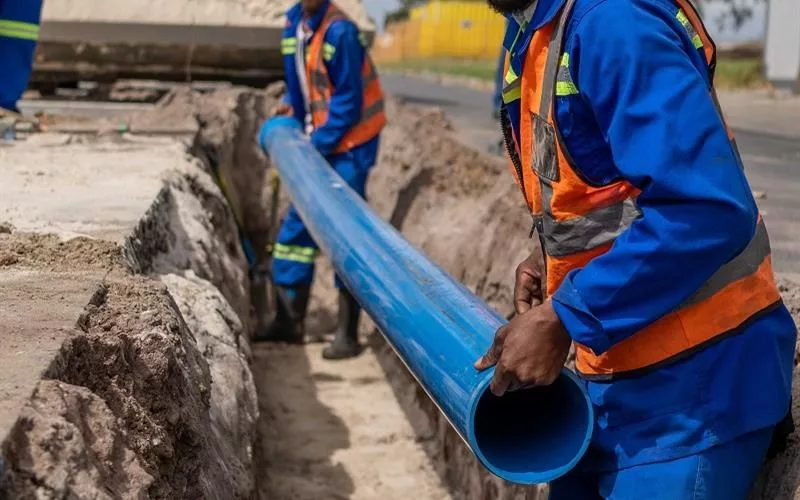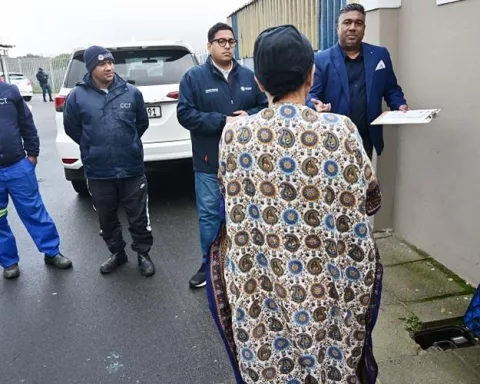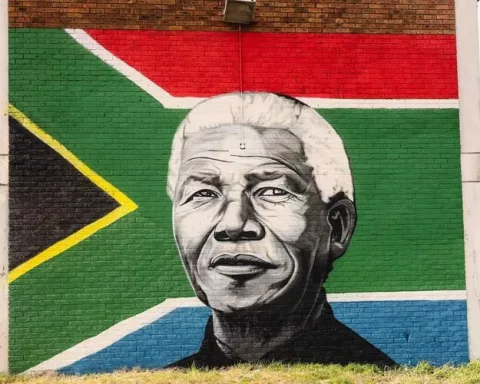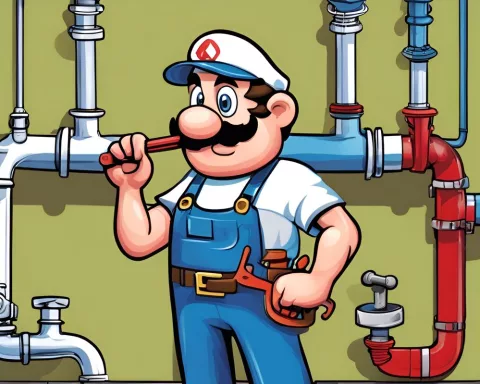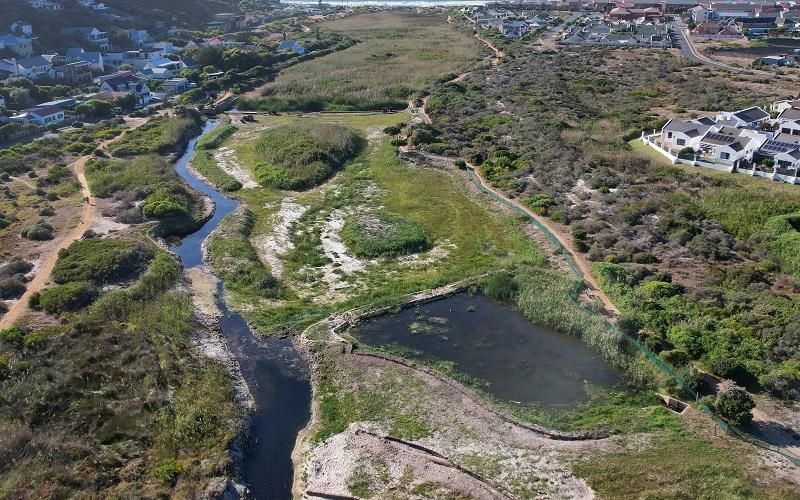Becott Road in Ottery is getting an infrastructure upgrade that includes replacing over 425 meters of deteriorating water pipes at an estimated cost of R1.7 million. The project is part of the city’s effort to maintain its aging water distribution network and is expected to be completed by May 2024. The open-trench excavation method was selected for this project, and it has created job opportunities for local residents. The project signifies progress, commitment, and resilience of the city.
What is the infrastructure upgrade on Becott Road in Ottery?
Becott Road in Ottery is undergoing a significant infrastructure upgrade, replacing over 425 meters of deteriorating water pipes at an estimated cost of R1.7 million. The renovation project underpins a larger objective to maintain the city’s aging water distribution network and is expected to be completed by May 2024. The open-trench excavation method was judiciously selected for this project, considering factors such as the pipe’s pressure, material choice, and the space available for pipe replacement.
A Fresh Chapter on Becott Road
As the season breathes new life, so does Becott Road in Ottery, embarking on a remarkable journey. This seemingly ordinary street, brimming with local livelihood, is on the brink of a significant infrastructure upgrade. Over 425 meters of deteriorating water pipes, remnants of a past epoch, are set to be replaced in the forthcoming months. A venture estimated to cost around R1.7 million, this is more than just an infrastructure facelift. It’s a testament to the city’s dedication to providing its citizens with a dependable water supply.
The Strategy Behind the Upgrade
The inception of this project is an integral component of the proactive plan of the Water and Sanitation Directorate. The renovation effort underpins a larger objective to maintain the city’s aging water distribution network. Devoted pioneers have been industriously working on this enterprise since February 23, 2024. The open-trench excavation method was judiciously selected for this project, considering factors such as the pipe’s pressure, material choice, and the space available for pipe replacement.
This open-trench approach, quite simply a trailblazing technique, was preferred to pipe-cracking technology, previously used by the city for other projects. Although pipe-cracking might necessitate more water shutoffs due to the requirement of temporary bypasses, this conventional trenching method holds an unmatched benefit. By laying new pipes adjacent to the old ones, the residents are guaranteed an uninterrupted water supply, except for necessary testing periods or during the final switch.
The Project Progress and its Supervision
Monitoring the development of this project is Councillor Zahid Badroodien, the Mayoral Committee Member for Water and Sanitation, and Ward Councillor for Ward 66, Councillor William Akim. Both recently visited the site. Maintaining an impressive pace, the project is expected to reach its conclusion by May 2024.
The urgency for this all-encompassing project was highlighted by several pipe bursts on Becott Road in the past year. This venture is not just a reaction to previous challenges but a forward-thinking attempt to reduce future disruptions. As Councillor Badroodien points out, an upgraded city infrastructure is pivotal to ensuring safe water distribution throughout Cape Town.
The Broader Impact of the Project
However, the advantages of this project spread beyond immediate infrastructure improvements. Projects of this caliber invariably create a surge of local job opportunities. Five local residents have been recruited as part of this project team, infusing a new vigor into the local community.
As you saunter down Becott Road, you perceive more than just pipework. You discern the city’s resolve to protect its water supply. You observe the strength of proactive policymaking. You realize the significance of investing in infrastructure. More importantly, you see a city that isn’t just expanding but progressing, with every pipe installed and every job offered.
Becott Road: A Symbol of Resilience and Future Readiness
This humble road in Ottery continues to narrate its tale, a story of growth, resilience, and community. Each dug trench signifies progress, a pledge of unwavering commitment to the inhabitants who call this city home. Each new pipe resonates with the whispers of advancement, of a city that doesn’t merely adjust to change but foresees it. Each decision paints a vibrant image of a city, and a street, prepared to welcome the future.
How is the open-trench excavation method being used for the infrastructure upgrade on Becott Road in Ottery?
The open-trench excavation method was selected for the infrastructure upgrade on Becott Road in Ottery. This method was chosen after considering factors such as the pipe’s pressure, material choice, and the space available for pipe replacement. By laying new pipes adjacent to the old ones, this method ensures an uninterrupted water supply for residents, except for necessary testing periods or during the final switch.
What is the estimated cost of the infrastructure upgrade on Becott Road in Ottery?
The infrastructure upgrade on Becott Road in Ottery is estimated to cost around R1.7 million. This project includes replacing over 425 meters of deteriorating water pipes in order to maintain the city’s aging water distribution network.
When is the infrastructure upgrade on Becott Road in Ottery expected to be completed?
The infrastructure upgrade on Becott Road in Ottery is expected to be completed by May 2024. The project has been in progress since February 23, 2024, and is being closely monitored by Councillor Zahid Badroodien, the Mayoral Committee Member for Water and Sanitation, and Ward Councillor for Ward 66, Councillor William Akim.
How will the infrastructure upgrade on Becott Road in Ottery impact the local community?
The infrastructure upgrade on Becott Road in Ottery will not only improve the immediate infrastructure but also create local job opportunities. Five local residents have been recruited as part of the project team, infusing new vigor into the local community. This project signifies progress, commitment, and resilience of the city.
Why was the open-trench excavation method chosen over pipe-cracking technology for the infrastructure upgrade on Becott Road in Ottery?
The open-trench excavation method was chosen over pipe-cracking technology for the infrastructure upgrade on Becott Road in Ottery. Although pipe-cracking might necessitate more water shutoffs due to the requirement of temporary bypasses, the open-trench excavation method holds an unmatched benefit. This method ensures an uninterrupted water supply for residents by laying new pipes adjacent to the old ones.
What is the broader impact of the infrastructure upgrade on Becott Road in Ottery?
The infrastructure upgrade on Becott Road in Ottery goes beyond immediate infrastructure improvements. It creates local job opportunities and signifies progress, commitment, and resilience of the city. Investing in infrastructure is pivotal to ensuring safe water distribution throughout Cape Town. This project is a forward-thinking attempt to reduce future disruptions and a symbol of resilience and future readiness.

